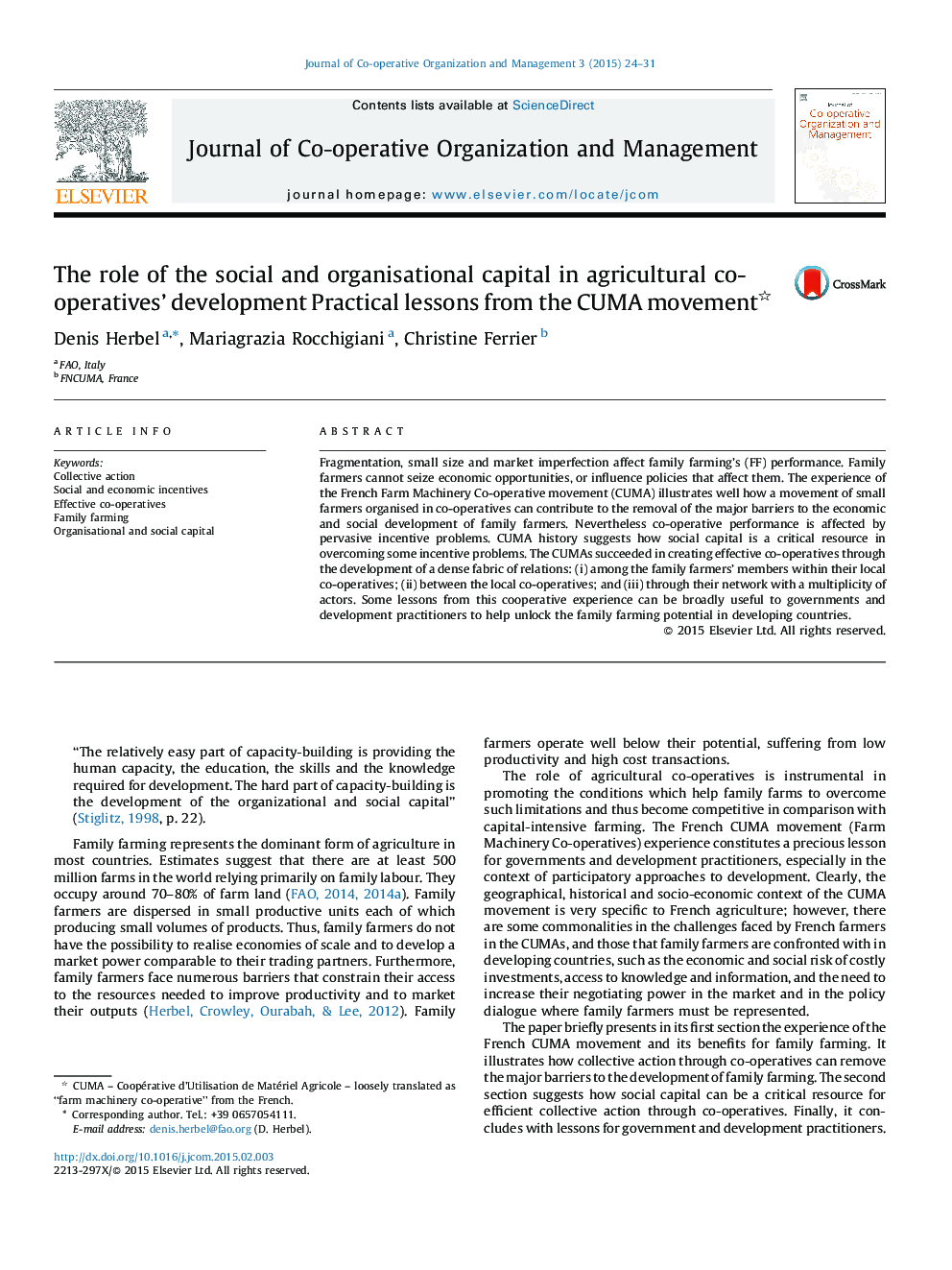| Article ID | Journal | Published Year | Pages | File Type |
|---|---|---|---|---|
| 1019952 | Journal of Co-operative Organization and Management | 2015 | 8 Pages |
Fragmentation, small size and market imperfection affect family farming's (FF) performance. Family farmers cannot seize economic opportunities, or influence policies that affect them. The experience of the French Farm Machinery Co-operative movement (CUMA) illustrates well how a movement of small farmers organised in co-operatives can contribute to the removal of the major barriers to the economic and social development of family farmers. Nevertheless co-operative performance is affected by pervasive incentive problems. CUMA history suggests how social capital is a critical resource in overcoming some incentive problems. The CUMAs succeeded in creating effective co-operatives through the development of a dense fabric of relations: (i) among the family farmers’ members within their local co-operatives; (ii) between the local co-operatives; and (iii) through their network with a multiplicity of actors. Some lessons from this cooperative experience can be broadly useful to governments and development practitioners to help unlock the family farming potential in developing countries.
